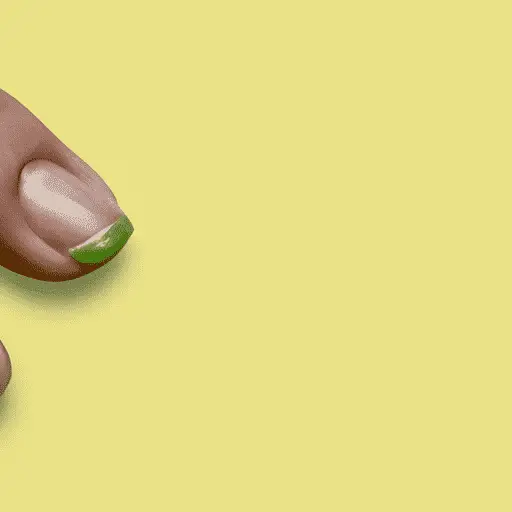-
Table of Contents
- Understanding Ringworm: Appearance and FAQs
- Key Takeaways
- Introduction: Unraveling the Mystery of Ringworm
- Understanding Ringworm: What Does It Look Like?
- How Does Ringworm Spread?
- Treatment and Prevention of Ringworm
- FAQ Section: Common Questions About Ringworm
- 1. Can ringworm go away on its own?
- 2. Is ringworm dangerous?
- 3. Can I catch ringworm from my pet?
- 4. How long does ringworm last?
- 5. Can I prevent ringworm?
- Conclusion: Demystifying Ringworm
- Key Takeaways Revisited
Understanding Ringworm: Appearance and FAQs

Key Takeaways
- Ringworm is a common fungal infection that affects the skin, hair, and nails.
- Despite its name, ringworm does not involve worms. The name comes from the characteristic ring-like rash it causes.
- Ringworm is highly contagious and can be spread through direct contact with an infected person or animal, or indirectly through contact with contaminated objects or surfaces.
- Ringworm can be effectively treated with antifungal medications, but prevention is key to avoid infection.
- Understanding the appearance and symptoms of ringworm can help in early detection and treatment.
Introduction: Unraveling the Mystery of Ringworm
Ringworm, also known as tinea, is a common fungal infection that affects the skin, hair, and nails. Despite its name, ringworm does not involve worms. The name comes from the characteristic ring-like rash it causes. This article aims to provide a comprehensive understanding of ringworm, its appearance, and answers to frequently asked questions about this common infection.
Understanding Ringworm: What Does It Look Like?
Ringworm typically presents as a red, itchy, scaly, circular rash with a clear center. The edges of the rash may be slightly raised or blistered. The size of the rash can vary, and multiple patches may appear. When the scalp or hair is affected, bald patches may occur. If the nails are infected, they may become discolored, thick, and crumbly.
How Does Ringworm Spread?
Ringworm is highly contagious and can be spread in several ways. Direct contact with an infected person or pet can transmit the fungus. Indirectly, the infection can spread through contact with contaminated objects or surfaces, such as towels, clothing, and shower floors. The fungus can also be contracted from infected soil.
Treatment and Prevention of Ringworm
Ringworm can be effectively treated with antifungal medications, which may be applied topically or taken orally, depending on the severity and location of the infection. Prevention is key to avoid infection. This includes maintaining good personal hygiene, avoiding sharing personal items, and avoiding contact with infected persons or animals.
FAQ Section: Common Questions About Ringworm
1. Can ringworm go away on its own?
No, ringworm typically does not go away without treatment. Over-the-counter antifungal creams, lotions, or powders can help treat the infection. If symptoms persist, a healthcare provider should be consulted.
2. Is ringworm dangerous?
While ringworm is not typically dangerous, it can cause discomfort and cosmetic concerns. If left untreated, the infection can spread and become more difficult to treat. In rare cases, a secondary bacterial infection can occur.
3. Can I catch ringworm from my pet?
Yes, ringworm can be transmitted from pets to humans. If your pet has patches of missing fur or a rash, it may have ringworm and should be seen by a veterinarian.
4. How long does ringworm last?
With treatment, most cases of ringworm clear up within 2 to 4 weeks. However, the infection can persist longer or recur if not properly treated.
5. Can I prevent ringworm?
Yes, there are several steps you can take to prevent ringworm. These include practicing good hygiene, not sharing personal items like towels or hairbrushes, and avoiding contact with people or animals who have the infection.
Conclusion: Demystifying Ringworm
Ringworm is a common, highly contagious fungal infection that can cause a characteristic ring-like rash. Understanding its appearance and knowing how it spreads can help in early detection and treatment. While ringworm can be effectively treated with antifungal medications, prevention is key to avoid infection. By answering common questions about ringworm, this article aims to demystify this common infection and provide valuable information for its prevention and treatment.
Key Takeaways Revisited
- Ringworm is a common fungal infection that affects the skin, hair, and nails.
- The infection presents as a red, itchy, scaly, circular rash with a clear center.
- Ringworm is highly contagious and can be spread through direct or indirect contact.
- Antifungal medications can effectively treat ringworm, but prevention is key to avoid infection.
- Understanding the appearance and symptoms of ringworm can help in early detection and treatment.

